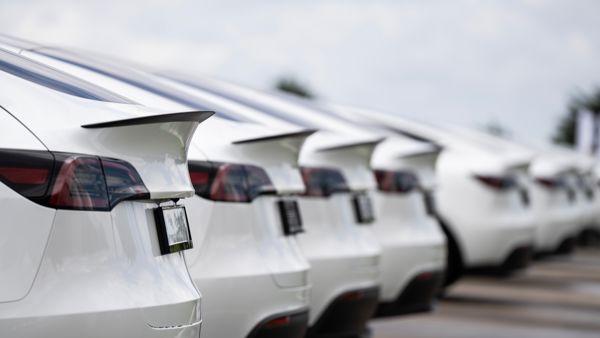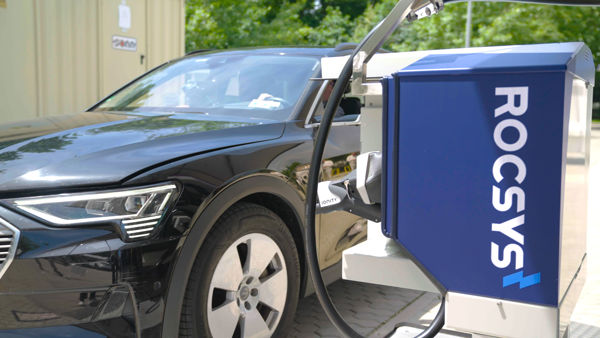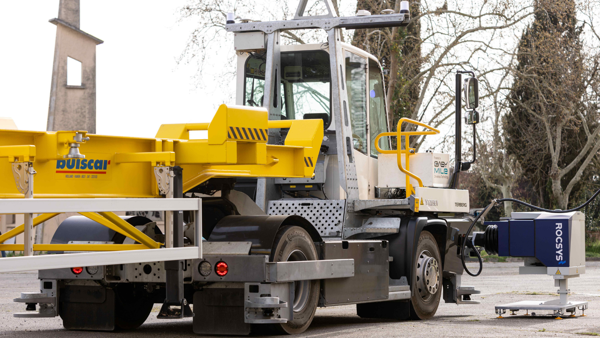
August 05, 2024
Crijn Bouman, Co-founder and CEO
Until recently, the debate about EV charging standards in the U.S. seemed settled. The Biden administration required the Combined Charging Standard (CCS) for all EV infrastructure installed with federal funds under the Inflation Reduction Act (IRA) and other programs. As a result, even Tesla agreed to open up its Supercharger network to other EVs. It looked like drivers would soon be able to find a CCS-compatible charger around every corner.
But it turns out, the story wasn’t finished yet. In the span of just a few months, the industry delivered a stunning about-face: automakers like Mercedes-Benz, Nissan, Volvo, and Rivian all announced they would be adopting Tesla’s North American Charging Standard (NACS). The news took many by surprise, considering that industry leaders had initially rallied around CCS as a way to scale EV production and adoption.
EV charging at a crossroads
So why the switch? It’s not that NACS is fundamentally better technology. On paper, the differences between the two standards mostly come down to brand positioning: Tesla wanted an exclusive service to fit its premium image, while the CCS’s backers aimed to build a non-proprietary, interoperable standard for the industry. The problem is that for CCS-outfitted charging stations in the U.S., the execution is falling short.
Tesla’s charging stations are known for seamlessness and reliability, boasting high uptimes, more plugs, and consistent availability. They are the “gold standard” in EV charging. Meanwhile, public charging stations using CCS plugs have struggled to shake off a reputation for outages, complicated memberships and apps, and inconsistent pricing.
Automakers read the room and went with the audience favorite—not because it was technologically superior, but because drivers simply liked it better. There’s an important lesson all EVSE providers can learn from this example.
The business case for UX leadership
The CCS vs. NACS debate isn’t quite over. States like Texas and Washington are publicly supporting NACS, but the federal government hasn’t changed tack yet. It’s even too soon to crown Tesla as the charging winner, considering that General Motors, BMW, Honda, and others are now collaborating on a new charging network (featuring both NACS and CCS).
But one thing is already clear: when it comes to opportunities in the EV and AV space, user experience matters more than anything else. At the end of the day, regardless of how impressive a technology is in the lab or how many big names back a standard—people are looking for a frictionless user experience.
Tomorrow’s winners will be the companies that make owning EVs and AVs more accessible, convenient, and hassle-free. They’ll be the ones who create products and solutions that are durable, simple to use, and work well together. And crucially, their offerings will be flexible and adapt as new technologies and standards develop.
If we apply this perspective to charging, there's no reason why we can’t transform one of the hassles of EV operations into an effortless—or, better yet, invisible—component. We believe in autonomous charging because it’s simply the best user experience. Drivers don't have to struggle with plugging in heavy charging cables, and equipment lasts longer because there's less wear and tear on systems. And for self-driving vehicles, autonomous charging provides the ultimate convenience of allowing the car to park and charge itself.
Our vision for better EV charging: no experience at all
At Rocsys, we believe the best charging experience is the one you don’t have. That's why we developed an autonomous solution that brings together cutting-edge robotics technology and AI to create a charging process that elevates the user experience, improves vehicle readiness, maximizes charging throughput, and reduces potential damage to the vehicle and charging equipment. And when it comes to charging standards, our ethos is hardware-agnostic; Rocsys autonomous charging systems are compatible with both standards and integrate easily with any future technology that comes along.
Transportation innovation for tomorrow’s standards
We’re not picking sides between CCS and NACS; both have their merits. But we do believe that the standards debate sends a clear message: transportation innovations should solve real-world problems. EVs and AVs are in the spotlight like never before, but true industry transformation will only be possible if we stick to the famous adage: “The customer is king.”
Rocsys is the leader in autonomous charging solutions for electric vehicles and equipment. With an innovative approach combining soft robotics, AI-based computer vision, and data-driven services, Rocsys creates a reliable, seamless, efficient, and cost-effective charging experience for fleets and consumers.
Founded in 2019 and headquartered in The Netherlands, with U.S. operations based out of Portland, Oregon, Rocsys is setting the standard for the future of autonomous charging with leading roles in industry consortiums and strategic partnerships with multinational corporations and OEMs.
August 05, 2024
July 17, 2024
June 13, 2024
June 12, 2024
April 16, 2024




